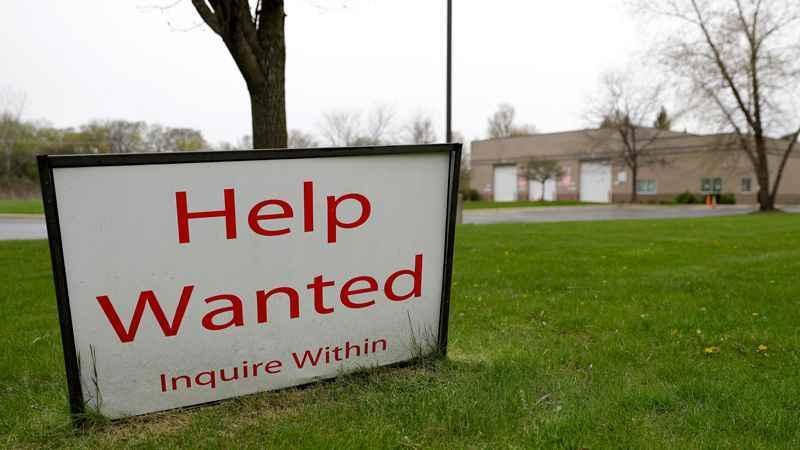US hiring plunged in December even as job openings ticked up

FILE - In this May 5, 2020 file photo, a help wanted sign shows at Illinois Air Team Test Station in Lincolnshire, Ill. U.S. employers cut back sharply on hiring in December, particularly in pandemic-hit industries such as restaurants and hotels, as soaring virus infections and government restrictions weakened the economy that month. The number of available jobs rose slightly and layoffs fell, according to the Labor Department’s Tuesday report, known as the Job Openings and Labor Turnover Survey, or JOLTS.[AP Photo/Nam Y. Huh]
U.S. employers cut back sharply on hiring in December, particularly industries slammed by the pandemic such as restaurants and hotels, as virus infections soared and governments responded with tighter restrictions.
The number of available jobs rose slightly and layoffs fell, according to the Labor Department’s Tuesday report, known as the Job Openings and Labor Turnover Survey, or JOLTS. The report provides more granular detail about the job market than the government’s monthly employment figures.
Employers cut hiring 6.6% in December, to 5.5 million, the report said. Roughly three-quarters of the decline occurred in a category that includes restaurants, bars, hotels, casinos, concert halls and other entertainment venues. Warehousing and shipping firms also slashed hiring, the report found.
On Friday, the government said that employers added a meager 49,000 jobs in January, signaling a potential stall in hiring and for the economy. That followed a loss of 227,000 jobs in December. The unemployment rate fell to 6.3% last month, in part because many of those out of work gave up on their job searches and were no longer technically counted as unemployed.
Tuesday’s report provides overall hiring and job posting figures, while Friday’s figure is a net gain after all hiring, layoffs and quits are added up.
Job openings rose just 1.1% in December to 6.6 million, the JOLTS report found. That leaves the number of job postings significantly below the pre-pandemic level of 7 million last February.
Other measures of available jobs suggest that they have fully recovered from the pandemic but are growing much more slowly. Jobs website Indeed.com said last week that postings on its website are now 0.7% above where they were in February 2020, before the pandemic intensified. But that’s much slower growth than a year ago, when postings were growing at a 9% annual rate.
And not all sectors have recovered, Indeed said. Job postings in hotels and tourism are still 35% below pre-pandemic levels, while restaurant jobs are down 13% and arts and entertainment nearly 17%.